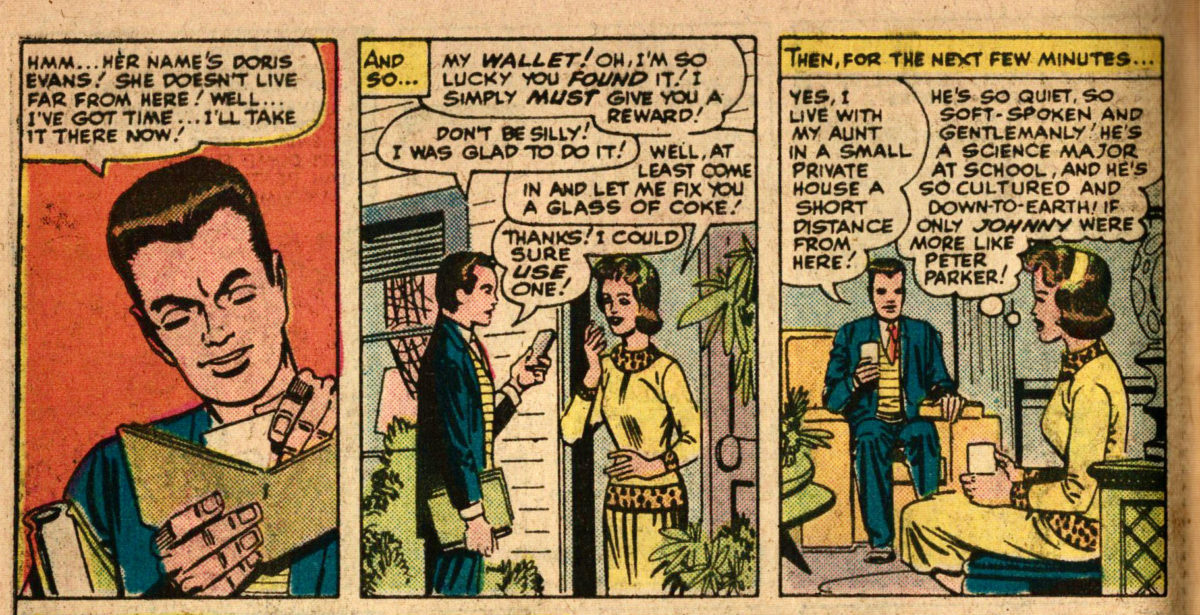Featuring: Daredevil
Release: March 3, 1966
Cover: May 1966
12 cents
Sagacious script by: Stan Lee
Phantasmagoric pencilling by: Johnny Romita
Iconographic inking by: Frankie Ray (nee Giacoia)
Lachrymose lettering by: Artie Simek
20 pages
| Previous | #505 | Next |
|---|---|---|
| Thor #130, Story B | Reading order | Daredevil #17 |
| Daredevil #15 | Daredevil | Daredevil #17 |
Let’s talk about your costume! Those red longjohns break me up– but I liked your old yellow duds better! … I mean they matched your new yellow streak!
This might be the first time we learn the true identity of Frankie Ray, really Frank Giacoia. For a lot of these people, the aliases are about not sabotaging regular gigs with Marvel’s competition. Frank Giacoia was a regular DC artist at the time, and hadn’t necessarily wanted them knowing he was freelancing for Marvel. But at some point it becomes clear, or his Marvel gig becomes the more regular gig, and it just stops mattering. Though by this point Marvel fans might know him best as Frank or Frankie Ray and not recognize the name Frank Giacoia.
Just like they might be confused if a comic were credited to Stanley Lieber or Jacob Kurtzberg.
That’s a great cover by Romita and Giacoia. The cityscape is detailed but the lack of color keeps it subtly in the background, leaving the focus on the two colorful characters. This is our first chance to see Spider-Man as rendered by John Romita. He captures that sense of agility that Ditko creates, and you can feel the motion of the cover, even without the helpful motion lines.

We’ve talked a bit about the tension in the pages of Amazing Spider-Man. Lee and Ditko aren’t getting along and Ditko is looking out the door. Lee is well aware of this, but has a huge problem. Spider-Man is his best comic, indelibly associated with Steve Ditko. You can’t just throw anybody on the book. Jack Kirby is Stan’s go-to artist when he needs a good one, but Jack had drawn Spider-Man a couple times by this point, and it was never right. And Jack’s style– while perfect for Fantastic Four– just wasn’t Spider-Man. Nobody was Steve Ditko.
We talked in the last issue about John Romita, who recently passed away. He’s been on Daredevil since Wally Wood left, following a succession of legendary talent from Bill Everett to Joe Orlando. And Romita has been more than up to the task of making his own mark on Daredevil.
But John Romita is not famous for drawing Daredevil. And while he excelled at the romance comics he had been drawing, that’s not really what made him a household name amongst fans. His step into legendary status will come with his next assignment, and this issue will serve as his audition for that assignment.
So, how well can John Romita draw Spider-Man? Let’s find out.
Continue reading “Daredevil #16”




























